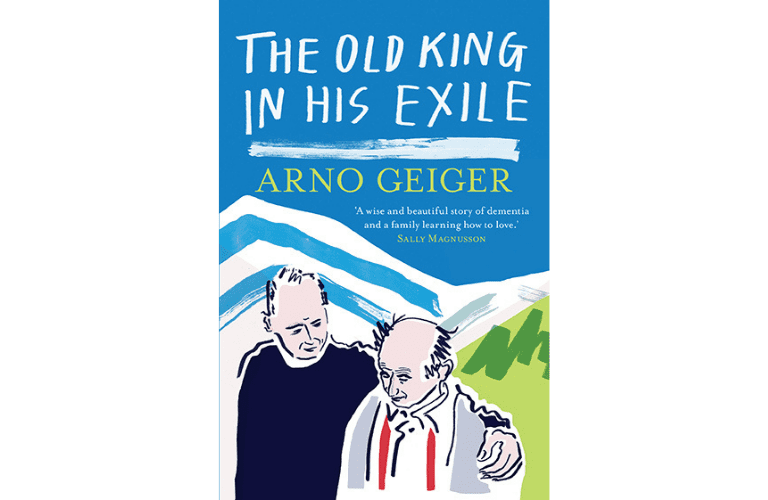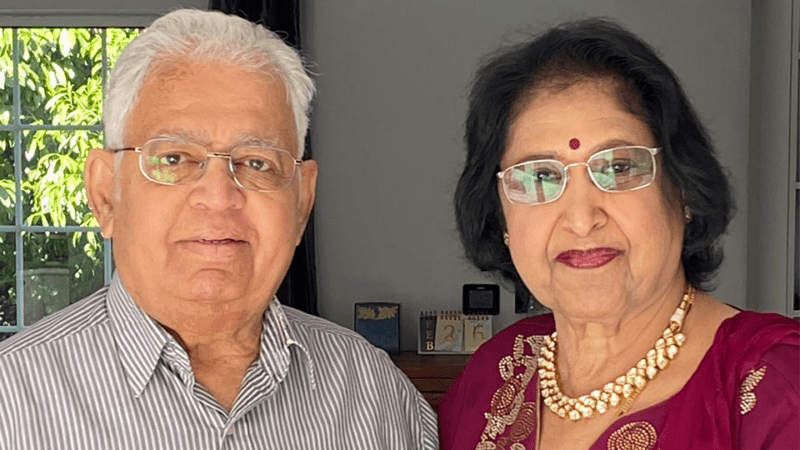
I can’t imagine having more empathetic bosses
Glenn shares how flexible working arrangements and support from his managers enables him to continue working whilst prioritising his wife Helen's care.
A book review by Rachel Thompson, Consultant Admiral Nurse. This was originally published in March 2017 following the book launch.
This sensitive and compelling book by Austrian author Arno Geiger, which has sold over 1 million copies in German, was recently translated into English and launched at the Austrian Cultural Forum. I was there and spoke with Arno about his book, telling his story of a son’s experience caring for his father with dementia.
There is a refreshing honesty in the description of Arno’s father, August, whose relationship with his family was not always easy. This is not uncommon within families and, when someone’s behaviour changes as a result of dementia, relationships are often placed under additional strain. Initial changes in their father’s behavior, such as misplacing things, loss of interest in everyday events and withdrawal, were misinterpreted, seen as eccentricities, and met with frustration.

“We were annoyed by his excuses and excuses they were, although for something other than what we suspected.”
August did not talk about his increasing difficulties and his family didn’t press the issue, all too willing to normalise these changes. It can be hard to accept a loss of ability in those we know and it is often easier to cover up and rationalise them. This can be a particularly difficult time for families and broaching the subject with the person may be a sensitive task. There remains a stigma and fear about dementia and losing our sense of self. As insight can diminish in the early stages, particularly in Alzheimer’s disease, seeking help as early as possible may provide answers and allow the person to prepare for the future.
Arno describes how, over a period of seven years, his father’s memory lapses, difficulties with managing usual activities and increased withdrawal became too difficult for the family to ignore, and eventually a diagnosis of dementia was given. The diagnosis clearly brought a sense of relief and allowed them to develop a new understanding of their father, but still left them with challenges.
“We were beginners, trying to maintain a semblance of control over our lives but without basic knowledge and skills.”
Getting a diagnosis is an important step in gaining understanding, adjusting to change, and making plans for the future. However, families need support with this. Arno’s family did not have access to this support, and they shared the care between them, navigating their way the best they could through difficult situations as their father’s condition progressed.
Arno vividly recalls situations such as when his father went out in the middle of the night, stopped recognising home, and accused his family of stealing his things. This sense of loss and struggle are experienced by many families and the temptation to resist the change we see in people with dementia is understandable.
A pivotal moment in the book comes when Arno accepts his father’s experience and perception of the world and stops trying to bring him back to his own reality. As a result their relationship improves.
“Daily interactions with my father were exhausting but were increasingly leaving me inspired too … I noticed that my feelings towards him were changing.”
When someone with dementia is trying to make sense of things they can be caught up in what seems like a ‘different reality’. They may refer to previous events or people who are no longer alive as if they are in the present. Our response needs to be sensitive, acknowledging that the person may be seeking a sense of security or belonging rather than trying to reinforce reality. As August’s ability to care for himself diminishes, the family employ carers to be with him when they can’t be there. Although this is initially confusing for him, he accepts help with more ease as his dementia progresses.
As Arno points out:
“No two people affected by dementia are alike and any generalisations are problematic…In my father’s case it progressed slowly and the less he was aware of his wretched condition, the less the disease affected his mood.”
Arno writes beautifully on the things they did together at this time, with regular walks, singing and funny conversations, albeit often touched with sadness. As his father’s physical health declines, episodes of agitation and distress increase. His growing need for skilled care makes it difficult for him to stay at home and eventually a move to a care home is agreed upon.
“In his own home that level of care was not possible, not even with his family’s concerted support. Admitting defeat can be a kind of success. Caring for our father was no good if it meant that other family members were neglected…
“We were burdened beyond what we could bear. On top of all that our father no longer felt comfortable in his own home.”
August accepts the move into a care home relatively easily although at times asks ‘go home.’ This can initiate feelings of guilt for families who may feel they have ‘abandoned’ their relative. However this is often fleeting and, unless there is real concern that the person isn’t being cared for well, then families should be re-assured that their presence brings a reminder of home.
Indeed, care homes where the person and their life are understood and respected; where every effort is made to provide a relaxed and enriched atmosphere; where staff are both skilled and kind, can be places of great comfort and security.
“Expectations are modest in the old peoples’ homes: little comforts, smiling faces, roaming cats, a joke that works. I like the fact that the people who live here are free from a society that judges people by their performance.”
Arno learns to accept his father as he is and this seems to bring him a sense of fulfillment, understanding and renewed love for his father, past and present. The book ends while Arno’s father August is still alive. Although he has since died, this book brings him to life as a vibrant and real character.
This is a sensitive and moving book, which I would certainly recommend to those caring for a family member or friend, or indeed someone who simply wants an insight into the experiences of families as they navigate their way through dementia.
In conversation with Arno Geiger about his book, I was able to talk about the role of Admiral Nurses in supporting families, understanding the condition, offering practical guidance, emotional support and helping families to develop skills to support those they care for.
His response: “I so wish we had that support with my father – things may have been very different for us.”
Our free, confidential Dementia Helpline is staffed by our dementia specialist Admiral Nurses who provide information, advice and support with any aspect of dementia.

Glenn shares how flexible working arrangements and support from his managers enables him to continue working whilst prioritising his wife Helen's care.

Will shares how his mum's diagnosis impacted the family and highlights the importance of advocating for young carers.

Pratibha shares her experience of caring for her late husband, Narayan Gopala, who lived with vascular dementia and died in 2024.